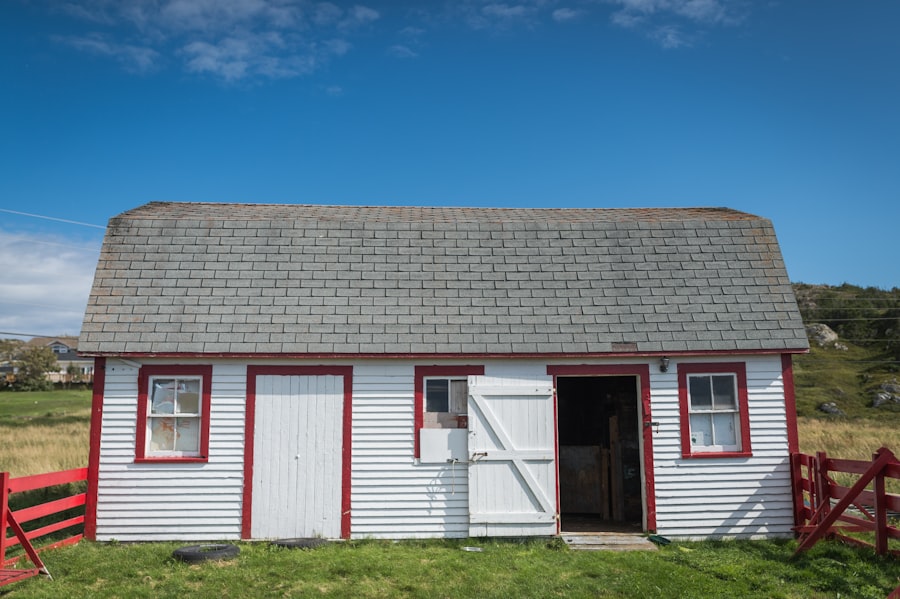Trailer house financing, often referred to as mobile home financing, encompasses a variety of financial products designed specifically for the purchase of manufactured homes. Unlike traditional homes, which are typically affixed to a permanent foundation, trailer houses can be more complex in terms of financing due to their classification as personal property rather than real estate. This distinction can significantly impact the types of loans available, interest rates, and the overall financing process.
When considering trailer house financing, it is essential to understand the various factors that influence loan eligibility and terms. Lenders often evaluate the borrower’s credit score, income stability, and the age and condition of the trailer house itself. For instance, many lenders prefer to finance newer models, as older trailers may not meet current safety and building standards.
Additionally, the location of the trailer house can affect financing options; homes situated in mobile home parks may have different requirements compared to those on private land. Understanding these nuances is crucial for potential buyers seeking to navigate the financing landscape effectively.
Key Takeaways
- Trailer house financing includes various options tailored to mobile and tiny homes.
- Government assistance programs can provide financial support for eligible trailer house buyers.
- Traditional mortgages may be available but often have stricter requirements for trailer homes.
- Rent-to-own agreements offer an alternative path to ownership without immediate full financing.
- Personal loans and specialized financing options exist for mobile home parks and tiny house trailers.
Government Assistance Programs for Trailer House Financing
Government assistance programs play a vital role in making trailer house financing more accessible for low- to moderate-income families. One of the most notable programs is the Federal Housing Administration (FHA) Title I loan program, which provides loans specifically for the purchase of manufactured homes and related expenses. This program is particularly beneficial for buyers who may not qualify for conventional loans due to lower credit scores or limited down payment capabilities.
The FHA Title I loans can cover the cost of the home itself as well as necessary improvements, making it a comprehensive option for many buyers. In addition to FHA loans, there are also state-specific programs that offer assistance for trailer house financing. For example, some states have established their own housing finance agencies that provide down payment assistance or favorable loan terms for manufactured home buyers.
These programs often target specific demographics, such as first-time homebuyers or veterans, and can significantly reduce the financial burden associated with purchasing a trailer house. By leveraging these government resources, potential buyers can find more affordable financing solutions tailored to their unique circumstances.
Traditional Mortgage Options for Trailer Houses

While traditional mortgages are typically associated with site-built homes, some lenders do offer mortgage options for trailer houses, particularly if they are permanently affixed to a foundation and classified as real property. This classification allows buyers to access conventional mortgage products with potentially lower interest rates and longer repayment terms compared to personal loans or chattel loans, which are more common for mobile homes. To qualify for a traditional mortgage on a trailer house, borrowers must meet specific criteria set by lenders.
This often includes a higher credit score requirement and a larger down payment compared to standard home loans. Additionally, the trailer house must meet certain standards regarding size and construction quality. For instance, many lenders require that the home be at least 400 square feet and built after 1976 to comply with HUD regulations.
Buyers should also be prepared to provide documentation regarding the home’s title and any land it may be situated on, as this can influence the loan’s approval process.
Rent-to-Own Trailer House Financing
| Metric | Description | Typical Range | Notes |
|---|---|---|---|
| Initial Deposit | Upfront payment to secure the trailer | 5% – 15% of trailer value | Usually non-refundable |
| Monthly Rent Payment | Monthly payment towards rent and eventual ownership | 300 – 800 | Includes rent and partial equity build-up |
| Lease Term | Duration of the rent-to-own agreement | 12 – 36 months | Longer terms may reduce monthly payments |
| Option to Purchase Fee | Fee to secure the option to buy at lease end | 1% – 5% of trailer value | Applied towards purchase price if exercised |
| Credit Score Requirement | Typical minimum credit score for approval | 550 – 650 | More flexible than traditional financing |
| Interest Rate Equivalent | Implied interest rate on rent-to-own payments | 8% – 20% APR | Higher than conventional loans due to risk |
| Equity Build-Up | Portion of rent payment applied to purchase price | 10% – 30% of monthly payment | Varies by contract terms |
| Maintenance Responsibility | Who is responsible for repairs during lease | Tenant or Landlord | Often tenant responsible in rent-to-own |
Rent-to-own agreements present an alternative financing option for those interested in purchasing a trailer house but who may not have immediate access to sufficient funds or creditworthiness for traditional loans. In a rent-to-own arrangement, the buyer rents the trailer house with an option to purchase it after a specified period. A portion of the monthly rent payments is typically credited toward the eventual purchase price, allowing renters to build equity over time.
This financing method can be particularly appealing for individuals who are uncertain about committing to a long-term mortgage or who may need time to improve their credit scores. However, it is essential for potential buyers to carefully review the terms of any rent-to-own agreement. Factors such as the duration of the rental period, purchase price determination, and maintenance responsibilities should be clearly outlined in the contract to avoid misunderstandings later on.
Additionally, buyers should consider whether they will be able to secure financing at the end of the rental term, as this will ultimately determine their ability to complete the purchase.
Personal Loans for Trailer House Financing
Personal loans represent another viable option for financing a trailer house, particularly for those who may not qualify for traditional mortgages or government assistance programs. These unsecured loans can be used for various purposes, including purchasing a manufactured home. The primary advantage of personal loans is their flexibility; borrowers can often use them for down payments or even cover the entire cost of the trailer house.
However, personal loans typically come with higher interest rates compared to secured loans like mortgages or chattel loans due to their unsecured nature. Lenders assess risk based on creditworthiness rather than collateral, which can lead to increased costs for borrowers with lower credit scores. Additionally, personal loans usually have shorter repayment terms, which can result in higher monthly payments.
Therefore, while personal loans can provide immediate access to funds for purchasing a trailer house, potential buyers should carefully evaluate their financial situation and consider whether they can manage the associated costs over time.
Financing Options for Mobile Home Parks

Investing in mobile home parks presents unique financing opportunities that differ from those available for individual trailer houses. Mobile home parks are considered commercial properties, which means that financing options often include commercial real estate loans or specialized mobile home park financing products. These loans typically require a more substantial down payment and may involve more rigorous underwriting processes compared to residential loans.
One common financing option for mobile home parks is through Small Business Administration (SBA) loans, which can provide favorable terms for qualified borrowers looking to purchase or improve a mobile home park. The SBA 7(a) loan program is particularly popular among investors due to its flexibility in funding various business-related expenses, including property acquisition and renovations. Additionally, some lenders offer specific loan products tailored to mobile home park investments that consider factors such as occupancy rates and cash flow projections.
Financing Options for Tiny House Trailers
The tiny house movement has gained significant traction in recent years, leading to an increase in financing options specifically designed for tiny house trailers. These homes are often classified as recreational vehicles (RVs) or personal property rather than real estate, which can complicate traditional financing routes. However, several lenders have begun offering specialized loans tailored to tiny house purchases.
One popular option is RV loans, which are designed for individuals looking to finance mobile living spaces like tiny houses on wheels. These loans typically have shorter terms and higher interest rates than traditional mortgages but can be an excellent fit for those seeking flexibility in their living arrangements. Additionally, some credit unions and community banks have started offering personal loans specifically for tiny house purchases, recognizing the growing demand for alternative housing solutions.
Borrowers should research various lenders and compare terms to find the best fit for their financial situation.
Tips for Securing Affordable Trailer House Financing
Securing affordable trailer house financing requires careful planning and consideration of various factors that can influence loan terms and interest rates. One of the most critical steps is improving your credit score before applying for financing. Lenders typically offer better rates to borrowers with higher credit scores; therefore, taking steps such as paying down existing debts and ensuring timely bill payments can significantly enhance your credit profile.
Additionally, it is advisable to shop around and compare multiple lenders before settling on a financing option. Different lenders may offer varying terms based on their assessment criteria and risk tolerance; thus, obtaining quotes from several sources can help you identify the most favorable rates available in the market. Furthermore, consider working with a financial advisor or mortgage broker who specializes in manufactured homes; their expertise can provide valuable insights into navigating the complexities of trailer house financing and help you secure a deal that aligns with your financial goals.



